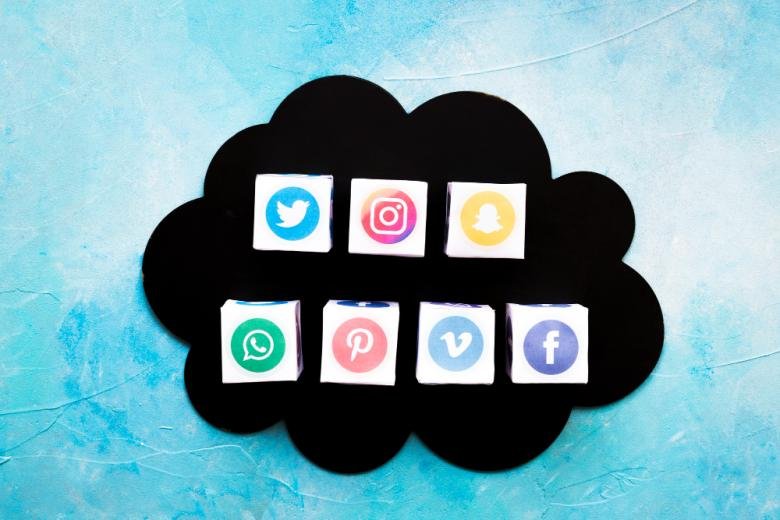Digital Tech Time represents the era of continuous advancements in technology, transforming how we live, work, and interact. From the early days of the internet to cutting-edge innovations like AI and blockchain, digital technologies have had a profound impact across various sectors. This blog will explore the origins of Digital Tech Time, its current developments, future outlook, and the challenges it poses.
The Evolution of Digital Tech Time: Tracing the Journey from Early Internet Days to Today’s Technological Landscape
The concept of Digital Tech Time began with the advent of the internet, which revolutionized communication and paved the way for technological integration in everyday life. As technology evolved, we saw milestones such as the introduction of mobile computing, the growth of social media, and the emergence of cloud computing. These foundational developments set the stage for the modern digital era, where innovative technologies like artificial intelligence, 5G networks, and quantum computing continue to reshape various industries.
The Internet Boom of the 1990s
During the 1990s, the World Wide Web went mainstream, enabling people to access information and communicate globally. It marked the beginning of the digital revolution, transforming businesses and creating new industries.
Rise of Mobile Computing in the 2000s
The launch of smartphones and tablets led to a new wave of mobile computing, making the internet accessible to people on the go. This shift fundamentally changed how we consume content, shop, and communicate.
Social Media and Cloud Computing in the 2010s

The growth of social media platforms like Facebook, Twitter, and Instagram, along with the adoption of cloud services, marked the digital transformation of businesses and everyday life, emphasizing connectivity and data accessibility.
Also read: The Inspiring Journey of Kase Abusharkh and Amy Berry: A Story of Collaboration and Impact
Key Innovations Driving the Digital Tech Time Era: How Emerging Technologies Are Shaping Our Future
Digital Tech Time is characterized by several groundbreaking technologies, each with a significant impact on how we operate across different fields. Let’s dive into some of the most influential technologies:
Artificial Intelligence (AI) and Machine Learning
Artificial Intelligence (AI) and machine learning (ML) have become fundamental components of the digital era. From powering virtual assistants like Siri and Alexa to enabling predictive analytics in healthcare and finance, AI and ML facilitate automation, streamline processes, and offer data-driven insights. Their ability to process large amounts of data and provide personalized experiences has made them crucial for business growth and operational efficiency.
The Internet of Things (IoT): Connecting Our World
The Internet of Things (IoT) is the network of physical devices embedded with sensors, software, and other technologies to connect and exchange data. IoT powers smart home devices (such as thermostats, security cameras, and wearables), smart city infrastructure (like traffic management and environmental monitoring), and industrial applications (such as predictive maintenance). This interconnectedness provides convenience, efficiency, and a data-rich environment for decision-making.
Blockchain Technology: More Than Just Cryptocurrency
While blockchain is commonly associated with cryptocurrencies like Bitcoin, its applications go far beyond digital currencies. Blockchain provides a decentralized and secure way of recording transactions, making it valuable for various industries, including finance, supply chain, and healthcare. Its transparency and security features enable use cases such as digital identity management, smart contracts, and secure data sharing.
Quantum Computing: The Next Frontier in Computing Power
Quantum computing leverages the principles of quantum mechanics to process information in ways that traditional computers cannot. Though still in its early stages, quantum computing has the potential to solve complex problems in minutes that would take classical computers thousands of years. It holds promise for fields like cryptography, drug discovery, and logistics optimization.
Also read: Exploring izonemedia360: A Complete Guide to Their Digital Marketing, Media Production, and Branding Solutions
How Digital Tech Time Is Revolutionizing Major Sectors: Industry-Specific Impact
Digital Tech Time is reshaping various industries by integrating technology to enhance efficiency, productivity, and user experiences. In healthcare, it enables telemedicine and AI-powered diagnostics; in education, it promotes e-learning and adaptive learning systems. Meanwhile, the entertainment industry benefits from streaming services and immersive technologies, while businesses leverage digital tools for automation, remote work, and global market reach.
Healthcare: A Digital Transformation in Patient Care

The healthcare industry has seen substantial changes due to technological advancements. Telemedicine, wearable health tech (e.g., smartwatches with heart rate monitors), and AI-powered diagnostic tools are reshaping patient care. These innovations allow for remote monitoring, early detection of illnesses, and improved treatment outcomes. AI is also utilized for drug discovery, while big data analytics helps in predicting patient trends and healthcare needs.
Education: Enabling Accessibility and Personalized Learning
Digital Tech Time has paved the way for e-learning platforms, AI-driven tutoring systems, and virtual classrooms, making education accessible to a broader audience. Educational tools use adaptive learning algorithms to tailor the learning experience to individual student needs, enhancing engagement and outcomes. Additionally, virtual reality (VR) is being used to create immersive learning experiences for complex subjects like science and history.
Entertainment: Redefining How We Consume Content
The entertainment industry has undergone a digital revolution, with streaming services like Netflix and Disney+ becoming the primary way people consume media. Innovations such as augmented reality (AR) and virtual reality (VR) provide new ways for audiences to experience content, from video games to interactive concerts. Digital content creation tools empower artists, musicians, and filmmakers to produce high-quality content independently.
Business and Economy: Adapting to the Digital Age
Digital Tech Time has driven businesses to adopt digital payment solutions, e-commerce platforms, and automation tools. This transition is not only streamlining operations but also expanding the reach of businesses to global markets. Remote work, facilitated by communication tools like Slack and Zoom, has transformed workplace culture and business strategies.
Also read: Futekmei.com: Your Ultimate Online Shopping Destination for Diverse Product Categories
The Role of Digital Tech Time in Building Smart Cities: Toward a More Connected and Sustainable Future
Smart cities use digital technologies to improve urban living by optimizing resource usage, reducing pollution, and enhancing public services. IoT sensors collect data on traffic, air quality, and energy consumption to help city planners make informed decisions. AI algorithms analyze the data to optimize traffic flow, reduce energy consumption in buildings, and manage waste efficiently. This interconnected ecosystem aims to create sustainable urban environments that can adapt to the growing demands of urbanization.
Addressing the Challenges Associated with Digital Tech Time
Cybersecurity: Protecting Data in an Interconnected World
As technology becomes more advanced, the risks associated with cyber threats grow. Cybersecurity measures, such as encryption, multi-factor authentication, and intrusion detection systems, are vital for protecting sensitive data. With the increase in data breaches and ransomware attacks, ensuring security across networks and devices has become a top priority for organizations.
Ethical Considerations in AI Development
The deployment of AI technologies brings ethical challenges, such as bias in algorithms, data privacy concerns, and the moral implications of autonomous systems (e.g., self-driving cars). Addressing these concerns involves developing guidelines for responsible AI use, implementing transparency measures, and ensuring inclusiveness in AI training data.
The Impact of Automation on Employment
While automation and AI improve productivity, they also risk displacing jobs in certain sectors. Upskilling and reskilling workers to adapt to new roles in the digital economy are crucial for minimizing job displacement. Emphasizing lifelong learning and promoting STEM education can prepare the workforce for the future.
Also read: Fastycom.com: A Comprehensive Guide to Its Features, Benefits, and Why It Stands Out
The Future of Digital Tech Time: Emerging Trends to Watch Out For
As Digital Tech Time continues to evolve, several trends are set to shape the future landscape:
1. Expansion of AI in Everyday Applications
AI is likely to become even more embedded in daily life, with advancements in natural language processing, computer vision, and robotics.
2. Growth of Edge Computing
Edge computing, which brings data processing closer to the source, will reduce latency and enable real-time decision-making in areas like autonomous vehicles and IoT devices.
3. Advancements in 6G Technology
As the successor to 5G, 6G technology promises to deliver even faster internet speeds and improved connectivity, powering new innovations in communication and digital services.
Also read: Aiotechnical.com computer: Your Ultimate Resource for Computer Technology
How to Stay Informed About Digital Tech Time Trends
To stay up-to-date with the rapid changes in technology:
- Read Reputable Tech News Sources
Websites like TechCrunch, Wired, and The Verge provide the latest updates on technology trends and industry developments. - Join Online Tech Communities and Forums
Platforms like Reddit, Stack Overflow, and LinkedIn groups offer discussions and insights on emerging technologies from enthusiasts and professionals. - Attend Tech Conferences and Webinars
Events like CES, Web Summit, and various online webinars are excellent places to learn about the latest trends and network with industry experts.
Conclusion
Digital Tech Time is an ever-evolving landscape shaped by innovative technologies and driven by the need for convenience, efficiency, and connectivity. Its impact on sectors like healthcare, education, business, and smart city development illustrates its transformative power. Staying informed and adaptable to new digital trends will be key to thriving in this dynamic era.
Suggested reads: Sightamins.com: Your Ultimate Source for Eye Health Supplements
Understanding 127.0.0.1:49342: A Beginner’s Guide to Localhost and Ports



0 Comments